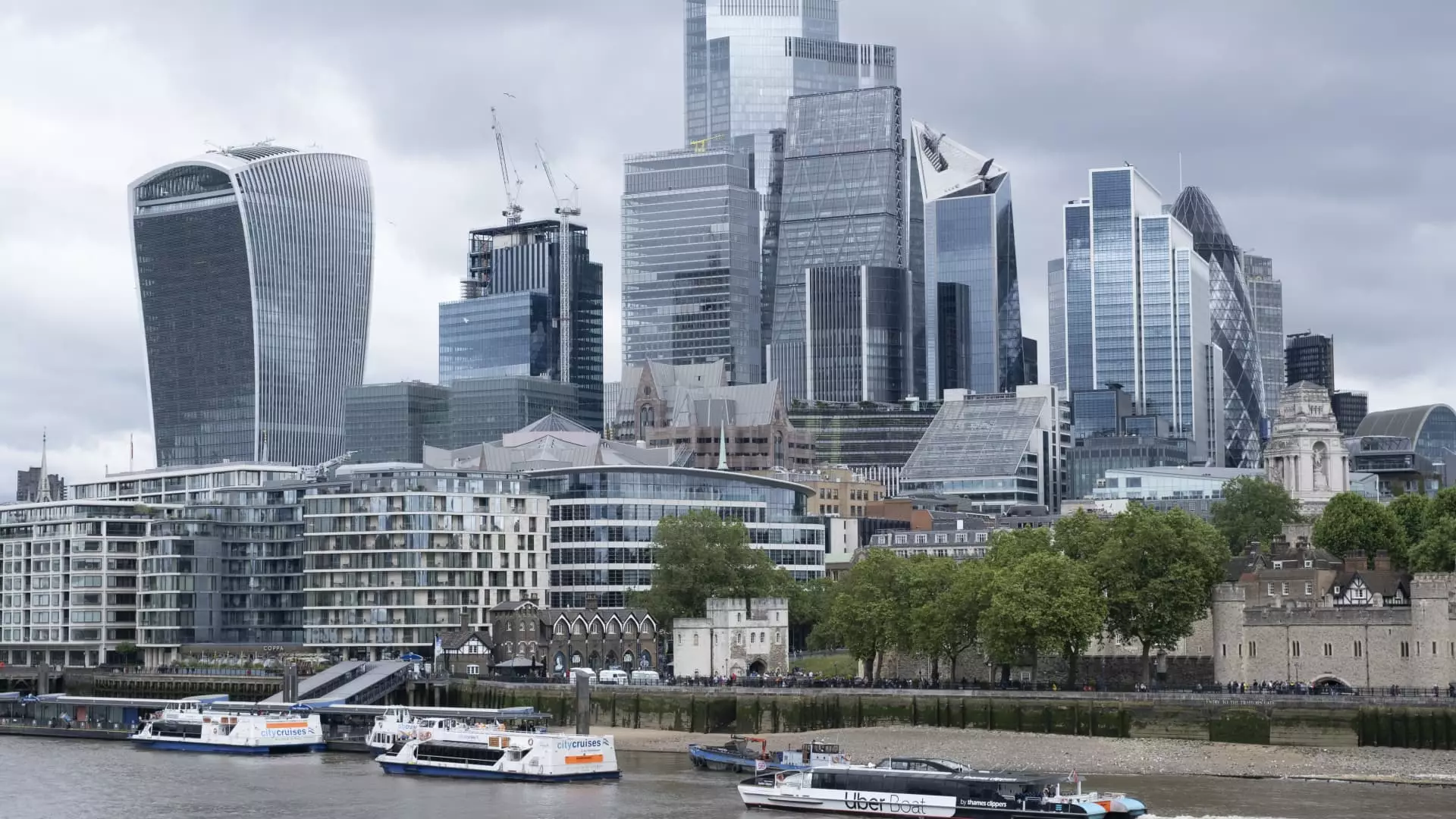In a recent announcement, the International Monetary Fund (IMF) has revised its growth projections for the United Kingdom, signaling a more optimistic economic landscape for 2024. The IMF now anticipates that the UK economy will grow by 1.1% next year, a significant upgrade from its previous forecast of just 0.7% made in July. This elevation in growth expectations comes largely in response to declining interest rates and easing inflation, which are expected to enhance domestic consumption and stimulate economic activity.
Inflation has been a significant concern for the UK economy over the past year; however, recent figures show a sharp decline to 1.7% as of September 2023, a dramatic drop from the staggering 11.1% recorded in October 2022. This reduction has set the stage for potential cuts in interest rates, with the Bank of England foreseen to lower its key rate from the current 5.25% to around 4.5% by year-end 2024. Economists believe that these monetary policy adjustments will provide much-needed support for consumer spending and business investment.
Despite the positive adjustments to growth projections, the UK has experienced lackluster economic performance thus far in 2023. As of August, economic growth was pegged at a modest 0.2%, following a stagnant period in June and July. The situation sheds light on the mixed signals within the economy, which has left many analysts cautious about the sustainability of this optimism.
The upcoming policy formulation and budget proposals from the UK’s center-left Labour Party, under Prime Minister Keir Starmer, add an additional layer of complexity to the economic narrative. Starmer’s government is preparing to present its first budget in 14 years, with anticipations of “tough” decisions aimed at addressing a purported £22 billion financing gap. Although Labour has committed to reducing net borrowing, the precise roadmap for this goal remains uncertain, particularly as Starmer has ruled out significant increases on major taxes such as income and corporate taxes.
Consumer confidence remains pivotal for economic recovery, and while fears regarding the uncertainties in the national budget have dampened sentiment, recent data indicate a slight improvement in household outlooks. The S&P Global UK Consumer Sentiment Index recently released suggests that consumers are becoming a bit more optimistic about their financial situations and are increasingly ready to make significant purchases, which could positively influence growth trajectories.
The finance minister, Rachel Reeves, acknowledged the IMF’s revised forecasts but emphasized the necessity for continuous effort to bolster the economy. “It’s welcome that the IMF has upgraded our growth forecast for this year, but I know there is more work to do,” she stated, affirming Labour’s commitment to achieving robust economic performance that stands out among the G7 countries.
The IMF has also made adjustments to growth projections for the eurozone, lowering its outlook for 2024 to 0.8%, down from 0.9%. Key challenges facing the region, particularly Germany, which is its largest economy, include sluggish industrial production, stiff competition in manufacturing, and elevated energy costs.
In contrast, the IMF forecasts an economic expansion of 2.8% for the United States, alongside 1.3% for Canada and a mere 0.3% for Japan, which is grappling with weak domestic demand amidst inflationary pressures. This comparative analysis illustrates that while the UK faces its own set of challenges, it appears to be on a more promising growth path relative to certain advanced economies.
While the IMF’s upgraded forecast presents a more optimistic picture of UK economic growth for 2024, the underlying challenges posed by fiscal uncertainties, slow-growing consumer confidence, and the need for prudent fiscal strategies remain apparent. The forthcoming Labour budget will be a critical component in shaping the nation’s economic trajectory and addressing its growing fiscal gap. As these dynamics unfold, careful monitoring will be essential to navigate the UK’s economic recovery amidst a complex global landscape.

Leave a Reply